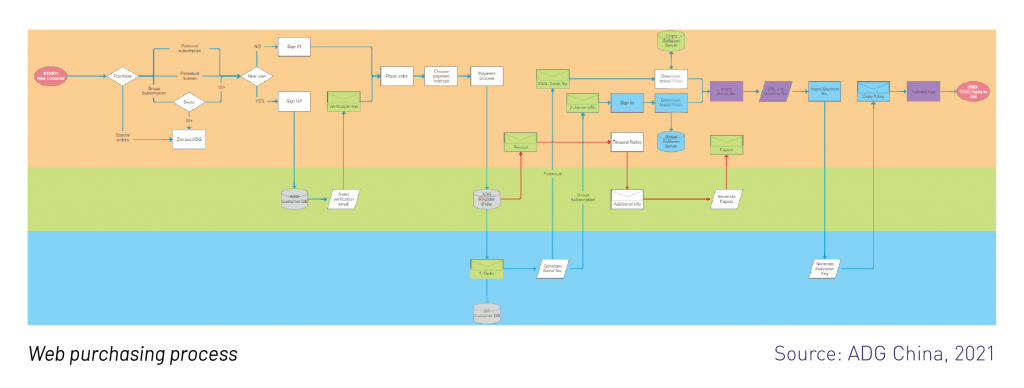When should companies create a Mainland China website?
Written by Chad Catacchio
07/27/2020

One of the questions Western technology companies often ask, is when is the right time to create a localized China website inside of China’s Great Firewall? This issue is multifaceted and in constant flux, and much more of a decision making and operational process than most companies anticipate.
To start, your company could bypass the entire issue and simply use your international site or a subdomain to provide information to your Chinese customers and partners. For websites that are basically translated informational text, this might be sufficient, and generally speaking, most small companies don’t have too many problems with websites hosted outside of China. However, even such basic sites run the risk of being blocked in China and/or suffer from slow loading speeds. It can work, but the more serious you get about China, the riskier this becomes.
If your company is currently hosting your Chinese language website outside of China AND you are actively (not just passively on a global scale) targeting Chinese consumers or enterprises, your risk of being blocked increases. Some of the key questions you should consider to assess your risk include the following:
- Are you operating in a “sensitive” area or doing something against the norms of what is done by local companies in China? Communications, social media features, etc., are all areas that increase your risk of being blocked.
- Is your China business small enough to stay off the radar and not draw too much unwanted attention?
- Are you competing head-to-head with large local competitors that would be happy to make sure Chinese regulators are keeping an eye on your activities?
- Are you collecting significant personal data on Chinese citizens, companies or areas that are considered relevant to what China considers national security? (what qualifies as “national security” can be quite broad)
From this point on, we’ll assume that you ARE targeting Chinese customers. Beyond having your domain completely blocked in China, hosting your website outside of China can have other detrimental effects to your business even if the site isn’t blocked (which again, can happen at any time). Among the issues you could run into are:
- Sections of your site not being accessible because they are run using third party services that are blocked in China, including help videos hosted on YouTube, embedded forms, CAPCHA, single sign on (SSO) through Google, Twitter, etc.
- Slow loading speeds and — for sites that host downloads — extremely slow download speeds that may time out
- Payment methods not working
- Inability to pass marketing and usage data to your centralized systems
- Inability to leverage Chinese advertising platforms
- Site performance slowing to a crawl during annual political conferences and other sensitive times
This can easily lead to frustrated customers and partners that want to use a Western company’s products and services but can clearly see that it hasn’t invested the time and resources into offering a fully functional China website. If you are starting to take the market seriously, your China consumers will appreciate you having a .cn domain that performs responsively and shows your commitment.
This isn’t to say that having a website legally hosted in China directly by your company or through a partner eliminates all risks — regulations in China are constantly in flux and are vague. For instance, one thing that has recently changed, and is now being strictly enforced, is that is also no longer possible to use a CDN or VPN service inside of mainland China without an ICP license. We have seen several situations in 2020 where Alibaba or other providers have stopped providing these services due to invalid documentation. Hong Kong might also be impacted in the future.
Navigating this environment long-term requires experience and industry and regulatory connections, and is key to success whether you work with China business growth experts like ADG China or try to do it internally.
Finally, beyond the regulatory and accessibility considerations, companies need to consider the technical and operational complexity of creating a (good) website inside of China. The bottom line is this: a fully-functional, attractive, and optimized website built for the China market is very different from a website or SaaS offering in other parts of the world. The tech stack is different (and mostly can’t be imported). The design is different. The content is different. The integrations and partners are different. All of this requires a dedicated, in-country team that can conceptualize, execute and maintain this unique web presence, while at the same time understanding and coordinating what is strategically important to global HQ.
In future posts, we’ll go in-depth into the steps and strategies required to create a lasting and successful website in China.



